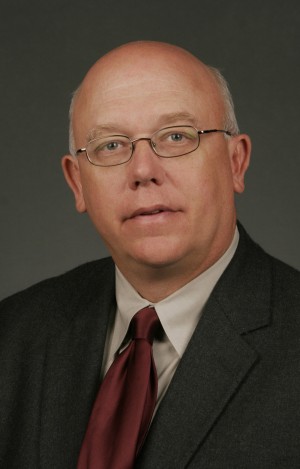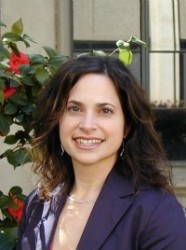
A significant number of American voters remain biased against Mormons and other religious minorities, thereby raising the hurdle for Mitt Romney and possibly other 2012 presidential candidates, according to a study by professors at Vanderbilt and Claremont Graduate universities.
“While Barack Obama’s victory in 2008 was dramatic proof that more American voters are willing to embrace diversity in presidential politics, certain religious groups still face discrimination in the political arena,” John Geer, Distinguished Professor of Political Science at Vanderbilt, said. “Romney and Jon Huntsman are among those who cannot take much comfort in our results.”
In “Two Steps Forward, One Step Back? Bias in 2008 Presidential Election,” Geer, Brett Benson and Jennifer Merolla examine the strong religious dimension of bias by some U.S. voters and its implications for current and future presidential politics.
The data came from two Internet-based experiments run by Polimetrix in November 2007 and October 2008. The first survey was done shortly before Mitt Romney’s speech about his Mormon faith in Texas on Dec. 6, 2007. The second was conducted just before the presidential election.

Among the professors’ findings, increased contact with members of a religious minority generally decreased voters’ bias against a presidential candidate from that particular group. However, among so-called born again Southerners, social contact did not diminish bias toward a Mormon candidate in the primary election. The study did find less bias by Southern Evangelicals toward the Mormon candidate in the general election.
“Some would be surprised at the extent of bias we found against Mormons running for office given that members of the Church of Latter Day Saints believe in Jesus Christ and tend to hold positions on social issues that are similar to those of many Southern Baptists and Catholics,” Geer said. “Our data showed that the voters’ increased social contact with Mormons reduces bias among the general population. However, this does not seem to be the case for Southern Evangelicals since religious threat is particularly relevant for this group. In other words, social contact does not diminish bias when the religious conflict from a given group is salient in politics.”
An example of the tension between Southern Evangelicals and Mormons in 2008 was when Romney was competing during the GOP presidential primary against Mike Huckabee, a former Evangelical preacher. By the general election, the two groups were no longer in competition and had incentives to band together against Obama, the Democratic nominee.

“Our findings do not rule out the possibility of a Mormon candidate being selected to run against President Obama,” Geer said. We just think that a higher jump might be needed for Romney or Huntsman.”
The professors found that atheist and Muslim candidates will have even greater challenges than Mormons in winning the support of Southern Evangelicals. They discovered that the voters’ increased social contacts with these particular groups would not diminish bias toward either an atheist or Muslim candidate in the general election.
For example, about 90 percent of those in low contact with Muslims would not favor a Muslim presidential candidate while 62 percent of those high in contact would not either. “While social contact appears to slightly diminish bias, it is still quite high among those who know Muslims,” Geer said. “Muslims and atheists clearly face a much tougher and steeper climb than do Mormons.”
“It is almost impossible to imagine any scenario that would make the candidacies of Muslims or atheists credible on the presidential stage anytime soon,” Geer said. “Nonetheless, Obama’s election has shown us that progress can be made – sometimes at surprising speed.”
Geer is a co-director of the Center for the Study of Democratic Institutions at Vanderbilt. Benson is an assistant professor of political science at Vanderbilt. Merolla is the Mary Nicolai-George Blair Assistant Professor in the Department of Politics and Policy at Claremont Graduate University. She designed the Internet survey that was conducted in November 2008 and analyzed the results. The 2008 data was collected under the Cooperative Campaign Analysis Project spearheaded by Simon Jackman, professor of political science at Stanford University, and Lynn Vavreck, associate professor of political science at the University of California, Los Angeles.
The study will be published in a forthcoming issue of Electoral Studies.